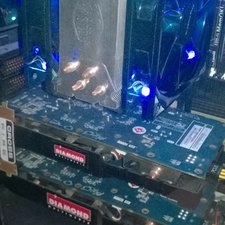I thought I would take the time to make this post, since I ultimately came away with a positive experience, after visiting this page and reading through all of the comments. It may or may not be applicable to your project, depending on the nature or requirements of your "solder", but I used the crazy glue as I would normally use solder to keep about 8 thin metal wires in place for a car sensor. Ideally, I would have liked to have a copper to copper transition, but all I had was an old USB cable, and they are so cheaply made, that most of the inside was insulation and cladding, but there were about (8) thin wires in total, if I took both positive (red) and ground (black) and combined them as one.
Once the sensors female housing was "de-pinned" and the metal post inside the housing removed. I was able to open and close the clasp with the (8) finely thin wires in place. Since they were so thin, I knew I had to bond it to the metal to have any success. I am away from home, so I had no access to my soldering iron. That is when I thought of crazy glue and found this page.
Am thankful for the comment mentioning the Graphite in the crazy glue mix, because I had that ingredient as well. Quick search on Google, revealed that #2 pencils are best. Now, there is metal to metal contact from end to end, with crazy glue holding everything in place, so whether or not the Graphite or Crazy Glue aids in conductivity, there is no way through my anecdotal experiment to say its all because of one ingredient or the other. All I can say is that I succeeded in what I was trying to accomplish.
I was able to repair the broken connection between the wiring harness and the sensor (engine bay photo, orange dash shows where the connection is broken).
I protected the "soldered wire" with a foil sleeve and afterwards a rubber sleeve (not pictured), and the knock sensor has worked fine for several days while the OEM replacement comes in the mail. I may just leave it as is just to see how long this fix will last.
Hope this can help someone.
Also, please read my above WARNING, that I replied to the Graphite comment. The crazy glue and graphite make a chemical reaction and will bond to your fingers. Be careful! I was able to remain unscathed due to having Goo Gone a few feet away, but You've been warned!
Был ли этот ответ полезен?
Проголосовали
Отменить
Оценка
0
Отмена
Scroll through this thread to find the appropriate place for this comment. Then, click "Attach comment to this post" to move it.


 3
3  2
2 
 14
14 










3 Комментариев
I might sound like an idiot after reading some of these reviews but im going to ask this question because i honestly have no idea but solder works as a good conductor correct?
My question is do you still need a conductor to get connection eg:when replacing a jack on headphones that requires soldering wires to metal jack.I would of thought wire would conduct to jack anyhow??
из Greg
YES, you can use superglue as a way to solder new components, such as soldering wires to the batteries, for example if you hold the contacts between the wires and the terminals together by some scissors or needles and you poured glue on them, it will still make the wire conduct to the terminal, and also protect the wire and the terminal from detaching each other. As for soldering snapped USB off of a circuit board, you could uses the needles to hold them in place, then pour a slick glue on it, and it will be SOLDERED with carefulness.
из Jack Dhunpah
Here's the result: https://www.quora.com/Can-I-use-hot-glue...
из Jack Dhunpah